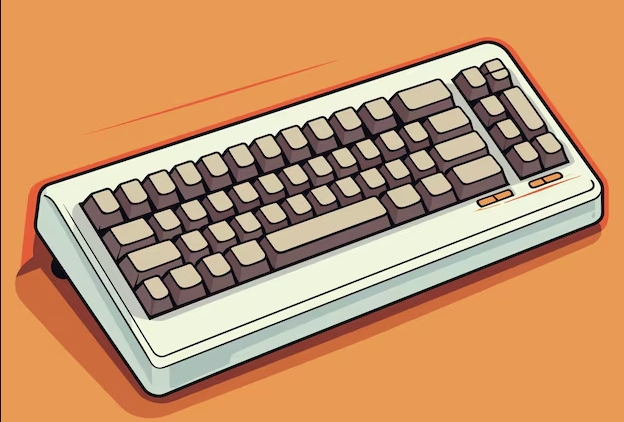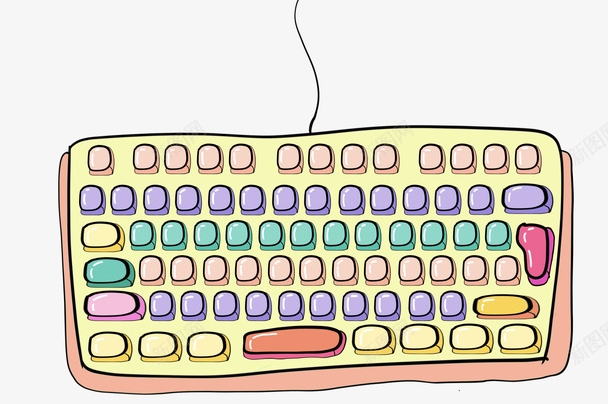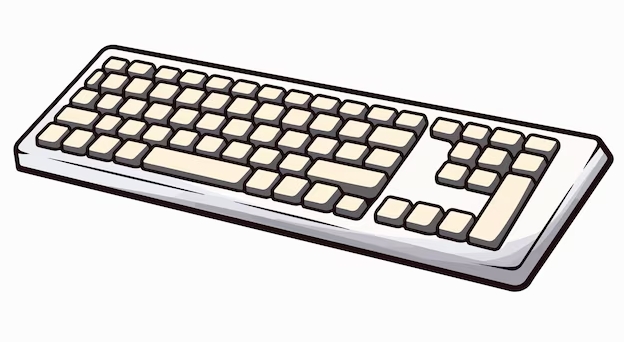how to fix keyboard works in bios but not in windows setup
The keyboard is available in the BIOS but the installation interface fails on the Windows, mainly due to driver compatibility, USB interface recognition or setup issues. 1. Try to replace it with a rear USB port or USB 2.0 port to avoid using HUB or wireless keyboard; 2. Enter the BIOS to enable the Legacy USB Support-related options; 3. Integrate the motherboard chipset driver into the installation USB disk or manually load the driver; 4. Use a virtual keyboard to temporarily replace the input. It is recommended to prioritize simple problems, such as interface replacement and BIOS settings, and then deal with complex situations such as drivers.

The problem of keyboard works in BIOS but not in Windows setup is actually quite common. Many users will encounter this situation when installing or reinstalling the system: the keyboard is clearly usable in the BIOS, but once you enter the Windows installation interface, it fails, resulting in the inability to continue operation.

There are several main reasons for this situation, such as incompatible drivers, insufficient power supply of USB interface, and wrong settings. The following methods can help you troubleshoot and solve this problem.
1. Check the keyboard connection method and interface
Some motherboards' USB ports may not be fully recognized by the Windows installer when booting, especially the front panel or interfaces connected via HUB.

- Try changing to a rear USB port (plugged directly on the motherboard), these ports usually have higher priority.
- If you are using a USB 3.0 interface , try changing to a USB 2.0 interface , because some old versions of Windows installation images do not support USB 3.0 well.
- Use a wired mechanical/film keyboard instead of a wireless or a keyboard with a docking station to avoid compatibility issues.
2. Enable Legacy USB Support in BIOS
Some motherboards have traditional USB support turned off by default, causing the Windows installer to not recognize the keyboard.
The method to enter the BIOS is generally to press Del , F2 , F10 or other keys when booting (see the motherboard brand prompts for details). Find options like the following:

- Legacy USB Support
- USB Keyboard/Mouse Legacy Support
- XHCI Hand-off or EHCI Hand-off
Set them to Enabled , save and restart your computer to try.
Note: The names of motherboard menus of different brands are slightly different. If you cannot find them, you can search for your motherboard model "enable legacy usb support" to locate it.
3. Load the keyboard driver to the Windows installation USB drive
If you are using a customized installation USB drive, it may lack the corresponding USB or keyboard driver, which will make the keyboard unusable.
You can try:
- Use tools such as DISM or NTLite to integrate the motherboard chipset driver (especially USB-related drivers) into the installation image.
- During the installation process, click the "Load Driver" button, insert the USB drive containing the driver, and load it manually.
This step is a little technical, but if you are familiar with the PE environment, you can do it.
4. Try using a virtual keyboard
If you have entered the Windows installation interface but are just stuck in the step of entering your username or locale settings, you can try:
- Click the Ease of Access icon (a small head) in the lower right corner of the screen
- Check On-Screen Keyboard
- Click the virtual keyboard with the mouse to complete the input
Although it is inefficient, it can at least keep you going.
Basically these common ways of handling it. Start with the simplest troubleshooting, such as changing the USB port or turning on the Legacy USB option in the BIOS, most of the situations can be solved. More complex ones, such as driver injection, are suitable for special hardware configurations or old motherboards.
The above is the detailed content of how to fix keyboard works in bios but not in windows setup. For more information, please follow other related articles on the PHP Chinese website!

Hot AI Tools

Undress AI Tool
Undress images for free

Undresser.AI Undress
AI-powered app for creating realistic nude photos

AI Clothes Remover
Online AI tool for removing clothes from photos.

Clothoff.io
AI clothes remover

Video Face Swap
Swap faces in any video effortlessly with our completely free AI face swap tool!

Hot Article

Hot Tools

Notepad++7.3.1
Easy-to-use and free code editor

SublimeText3 Chinese version
Chinese version, very easy to use

Zend Studio 13.0.1
Powerful PHP integrated development environment

Dreamweaver CS6
Visual web development tools

SublimeText3 Mac version
God-level code editing software (SublimeText3)

Hot Topics
 1796
1796
 16
16
 1746
1746
 56
56
 1593
1593
 29
29
 1475
1475
 72
72
 267
267
 587
587
 How to Fix KB5060829 Not Installing & Other Reported Bugs
Jun 30, 2025 pm 08:02 PM
How to Fix KB5060829 Not Installing & Other Reported Bugs
Jun 30, 2025 pm 08:02 PM
Many users encountered installation issues and some unexpected problems after applying the Windows 11 update KB5060829. If you're facing similar difficulties, don't panic. This MiniTool guide presents the most effective fixes to resolve KB5060829 not
 Windows Security is blank or not showing options
Jul 07, 2025 am 02:40 AM
Windows Security is blank or not showing options
Jul 07, 2025 am 02:40 AM
When the Windows Security Center is blank or the function is missing, you can follow the following steps to check: 1. Confirm whether the system version supports full functions, some functions of the Home Edition are limited, and the Professional Edition and above are more complete; 2. Restart the SecurityHealthService service to ensure that its startup type is set to automatic; 3. Check and uninstall third-party security software that may conflict; 4. Run the sfc/scannow and DISM commands to repair system files; 5. Try to reset or reinstall the Windows Security Center application, and contact Microsoft support if necessary.
 Spotlight on Windows 10 KB5061087 & Fixes for Not Installing
Jun 30, 2025 pm 08:03 PM
Spotlight on Windows 10 KB5061087 & Fixes for Not Installing
Jun 30, 2025 pm 08:03 PM
Microsoft has released Windows 10 KB5061087 for 22H2 to fix some issues. From this post on MiniTool, learn how to install this preview optional update on your PC. Also, you can know what to do if KB5061087 fails to install via Windows Update.Quick Na
 PEAK Voice Chat Not Working on PC: Check This Stepwise Guide!
Jul 03, 2025 pm 06:02 PM
PEAK Voice Chat Not Working on PC: Check This Stepwise Guide!
Jul 03, 2025 pm 06:02 PM
Players have been experiencing the PEAK voice chat not working issue on PC, impacting their cooperation during climbs. If you are in the same situation, you can read this post from MiniTool to learn how to resolve PEAK voice chat issues.Quick Navigat
 Windows can't access shared folder on network
Jun 30, 2025 pm 04:56 PM
Windows can't access shared folder on network
Jun 30, 2025 pm 04:56 PM
When encountering the "Windowscan'taccesssharedfolderonnetwork", you can usually solve the problem through the following steps: 1. Turn on the network discovery and file sharing function and turn off password protection; 2. Make sure that the target computer is enabled to share and set the correct permissions; 3. Check the firewall rules and service status to ensure that it allows shared access; 4. Use the credential manager to add network credentials for long-term and stable connection.
 Windows 'Getting Windows ready, Don't turn off your computer' stuck
Jun 30, 2025 pm 05:18 PM
Windows 'Getting Windows ready, Don't turn off your computer' stuck
Jun 30, 2025 pm 05:18 PM
When you encounter Windows stuck in the "GettingWindowsready, Don't turnoff your computer" interface, you should first confirm whether it is really stuck; 1. Observe whether the hard disk indicator light is flashing, 2. Check whether the fan sound has changed, 3. Wait at least 30 to 60 minutes to ensure that the system has enough time to complete the update operation.
 Windows clipboard history not working
Jun 30, 2025 pm 05:14 PM
Windows clipboard history not working
Jun 30, 2025 pm 05:14 PM
When the Windows clipboard history is not working, you can check the following steps: 1. Confirm that the clipboard history function is enabled, the path is "Settings>System>Clipboard", and if it is not enabled, Win V will not respond; 2. Check whether the copy content type is limited, such as large images, special formats or file paths may not be saved; 3. Ensure that the system version supports it, Windows 101809 and above, and some enterprise versions or LTSC do not support it; 4. Try to restart the ClipboardUserService service or end the clipups.exe process; 5. Clear the clipboard cache or reset the settings, close and then turn on the "Clipboard History" or run the "echooff|clip" command to clean up the cache
 How to fix a stuck Windows restart screen?
Jun 30, 2025 pm 05:10 PM
How to fix a stuck Windows restart screen?
Jun 30, 2025 pm 05:10 PM
Don't rush to reinstall the system when the computer is stuck in the Windows restart interface. You can try the following methods first: 1. Force shutdown and then restart. Apply to the situation where the update is stuck. Repeat two or three times or can skip the lag; 2. Enter the safe mode to check, select Start repair or system restore through troubleshooting. If you can enter safe mode, it may be a driver or software conflict; 3. Use the command prompt to repair the system files, enter the three commands sfc and dism in the recovery environment to repair the damaged files; 4. Check the recently installed hardware or driver, unplug the non-essential devices or uninstall the new driver to eliminate incompatibility issues. In most cases, the above steps can solve the phenomenon of restart lag. If it really doesn’t work, consider reinstalling the system and paying attention to backing up data in advance.





